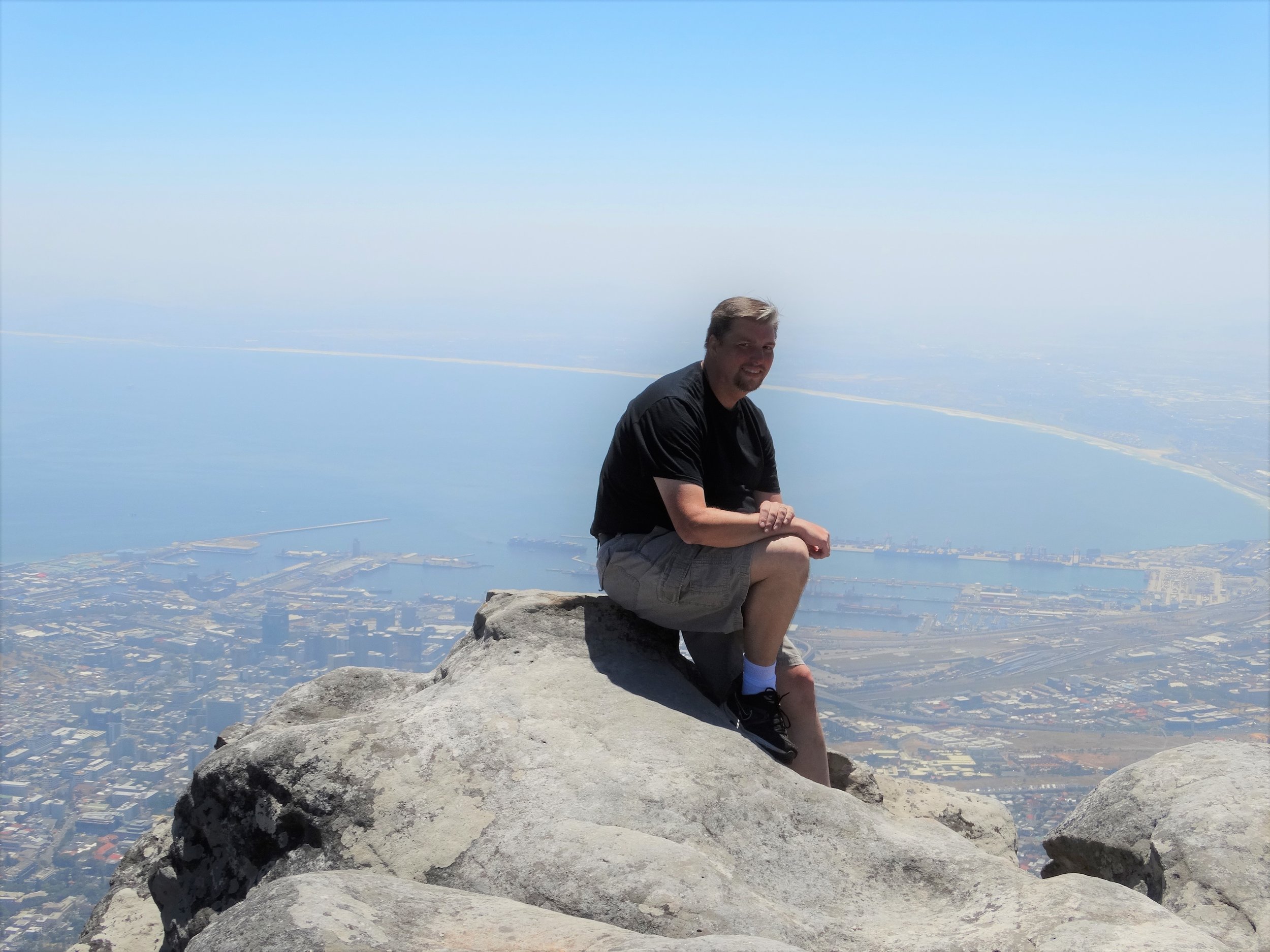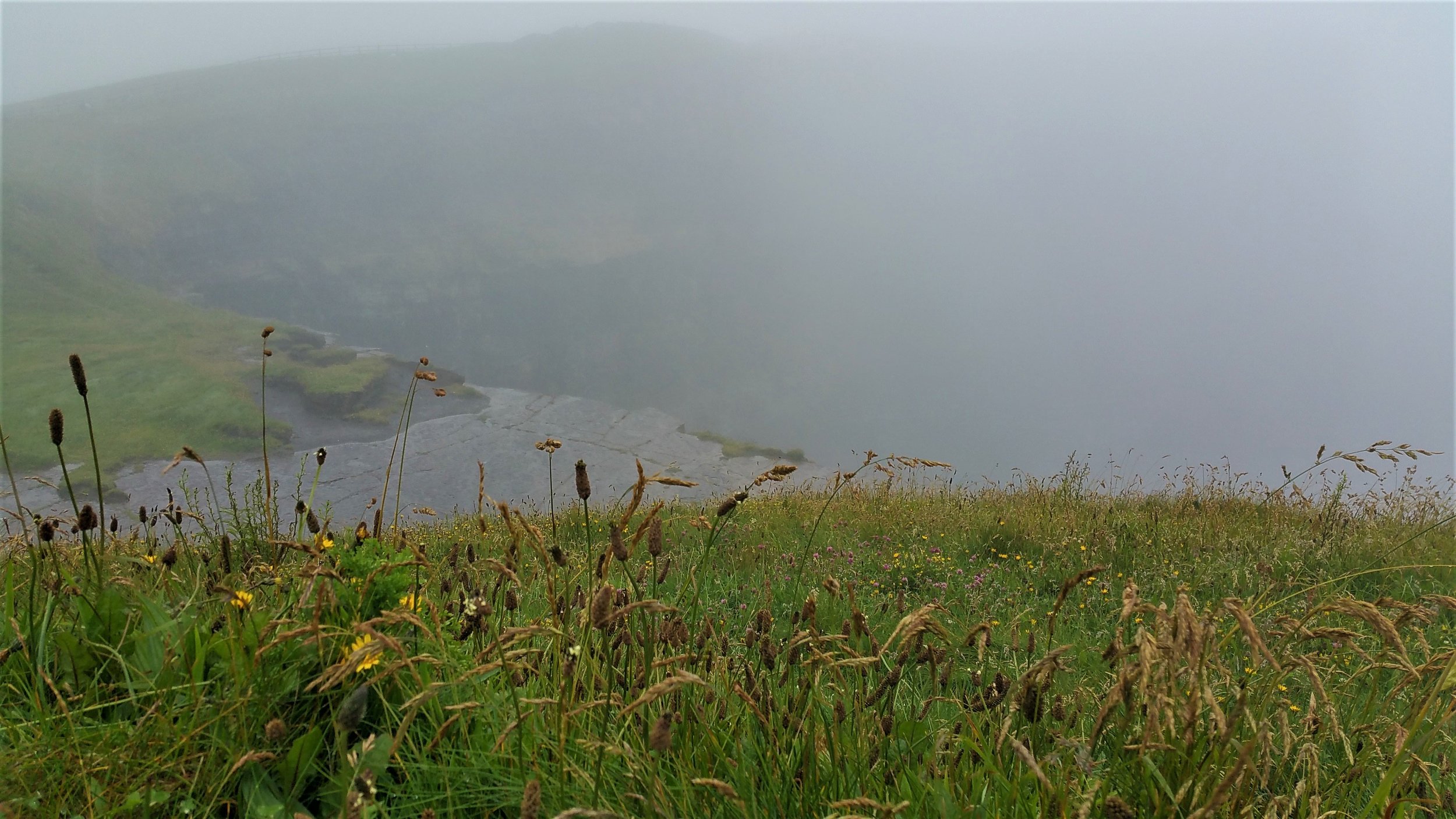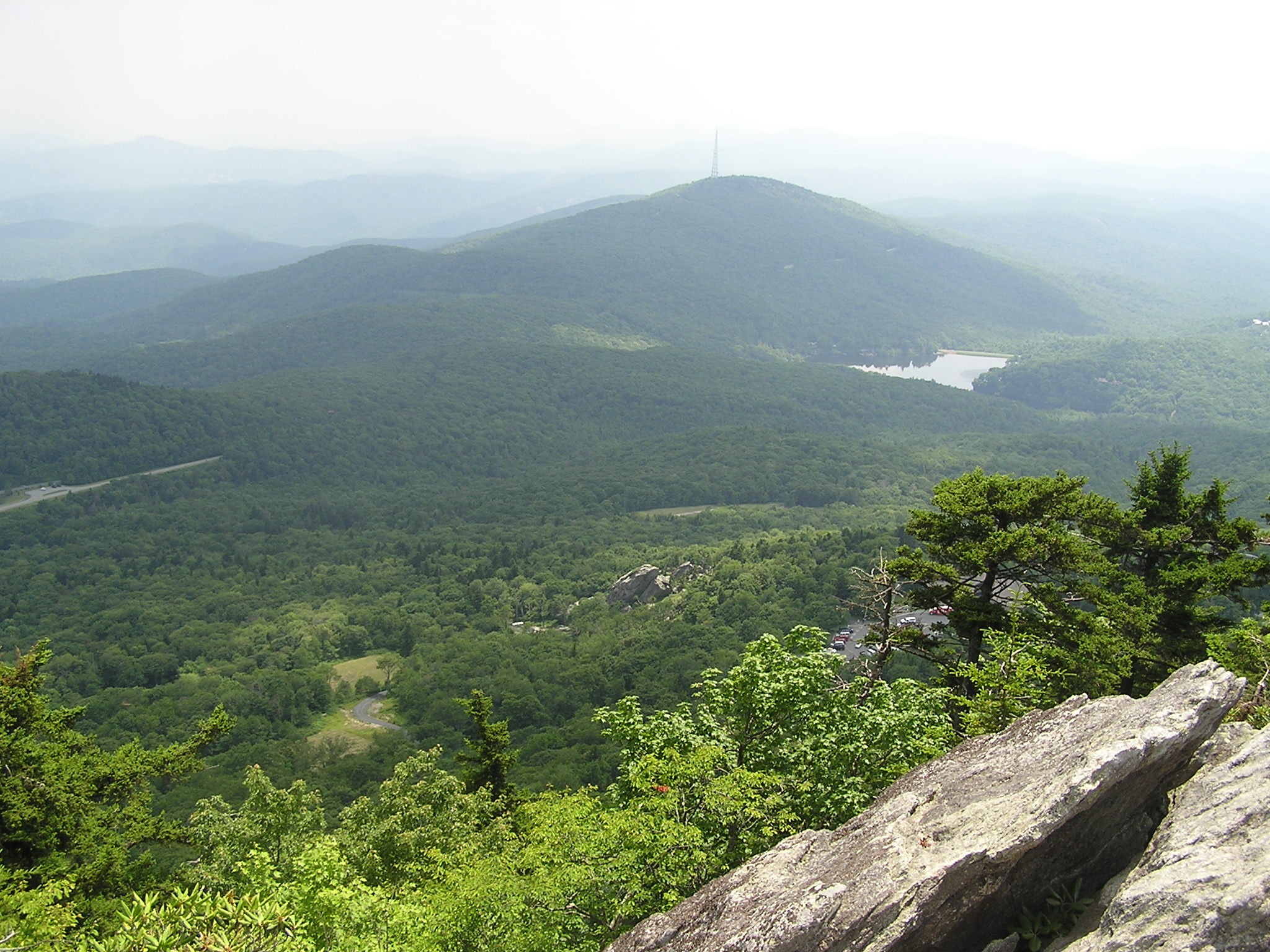I arise today...
Through the firmness of rock...
The Lorica of Saint Patrick (St. Patrick's Breastplate Prayer)
We often describe the Christian life in terms of diving into deeper waters, allowing the wind and waves of the Spirit to take us where it will. This is an important truth, but it is not the whole truth. Yes, life in the Spirit can often seem like a mighty rushing river, but God is also our rock and our salvation, a mighty fortress and a bulwark never failing.
I’ve been to many mountain overlooks throughout North Carolina and Kentucky and most of the popular touristy ones are blocked off with man-made rails to keep people from falling over the edge. But my favorite places in the mountains are on the rocks beyond the rails, where they are accessible. There is one area of Grandfather Mountain past the bridge like this, and a few rock arches in Red River Gorge, Kentucky where I used to hike. But my favorite by far has been the top of Table Mountain in Cape Town, South Africa.
It is the largest (in terms of land area) mountain top I have ever hiked and it’s views out over the ocean are awe-inspiring. I think that’s what I like most about it. Unlike the Smokey Mountains on my home turf, this mountain literally seems to rise right out of the sea. I sat on the edge of a rock overlooking the sea for well over an hour, on the far side of the mountain where most of the tourists did not wander. As I looked down at the inner city of Cape Town and to the harbor and sea beyond, I thought about the turmoil that nation had gone through, the suffering of Apartheid, the continual rises and falls of governments, the people on the margins who endure the brunt of the decisions made by those on top who are rarely affected. This kind of chaos exists in every nation of course, but the rock I sat upon reminded me that no matter how hard the waves crashed against the base of the mountain, the ground above it all remained solid.
I also remember standing on the Cliffs of Mohr on the Ireland coast. The fog was dense that day. I heard the rough surf below but could not see a things. We couldn’t even see the cliff walls below us. Yet somehow these invisible rocks jutting out of the sea had stood firm against centuries of crashing waves and winds.
When the winds of life throw me off balance and the waves crash hard against the foundations I thought were secure, these are the kinds of places I long to be. I remember standing on the edge of Chimney Rock in Kentucky one April afternoon. A random late year snow storm blew in out of nowhere, but as the wind pressed against me and the snow blinded my view, I became even more aware of the solid rock beneath my feet.
“Why do we run from the rain,” I wrote in a song that day. “Why do we hide from the storm?”
The rock is secure. There is nothing to fear. The ground is firm beneath our feet.
My prayer for the church and for all of us is that we will not only stand firm on the solid rock of Christ, but that we will become a place of stability where others can sit or stand secure even in the midst of their storms, far above the crashing waves of life.
It is one thing to take shelter inside where we cannot see or hear the waves and wind or feel the rain and snow. But sometimes I think we need to spend some time in the middle of the churning sea and feel the storm upon our skin as we sit or stand on the solid rock, on stable earth. The shelters we build to hide ourselves from the world will inevitably crumble, but the mountain stands secure.
Reflections:
1. Where do you need a firm rock to stand on in your life right now?
2. In response to storms, do you tend to retreat to a self-made shelter or stand strong on the mountain to face it? How do you sense God leading you to respond to the storms in your life today?
3. Would people describe you as a rock in their life, a safe and firm place where they can feel secure no matter what they are dealing with? Who might God be calling you to be a rock for this week? Who has God put in your life to be a rock for you?






Our journey through St. Patrick's Breastplate Prayer continues next week:
... I arise today,
Through God’s strength to pilot me…



